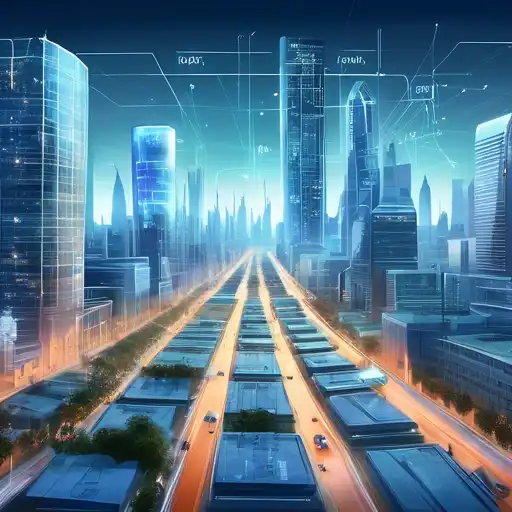Introduction to IoT and Smart Cities
The Internet of Things (IoT) is revolutionizing the way cities operate, making them smarter and more efficient. By connecting devices and systems across urban areas, IoT technology enables real-time data collection and analysis, leading to improved public services, reduced environmental impact, and enhanced quality of life for residents.
Key Areas Where IoT is Making an Impact
From traffic management to waste disposal, IoT is at the forefront of urban innovation. Below are some of the key areas where IoT is making a significant difference:
- Traffic and Transportation: IoT devices help in monitoring traffic flow, reducing congestion, and optimizing public transport routes.
- Energy Management: Smart grids and meters allow for more efficient energy use, reducing costs and carbon footprints.
- Public Safety: Surveillance cameras and sensors enhance security measures and emergency response times.
- Waste Management: Smart bins and recycling systems ensure cleaner streets and more sustainable practices.
Benefits of IoT in Urban Development
The integration of IoT into city infrastructure offers numerous benefits, including:
- Enhanced efficiency in city operations
- Improved sustainability and environmental protection
- Greater convenience and safety for citizens
- Cost savings for municipalities and taxpayers
Challenges and Considerations
Despite its advantages, the implementation of IoT in cities comes with challenges such as privacy concerns, cybersecurity risks, and the need for significant investment. Addressing these issues is crucial for the successful adoption of smart city technologies.
Future Prospects
As technology advances, the potential for IoT in urban development continues to grow. Future innovations may include more autonomous systems, advanced data analytics, and even greater integration of IoT into everyday life, further transforming the urban experience.
For more insights into how technology is shaping our cities, explore our articles on urban innovation and sustainable development.
Conclusion
The role of IoT in making cities smarter cannot be overstated. By harnessing the power of connected devices, urban areas can become more livable, efficient, and sustainable. The journey towards fully smart cities is ongoing, but the progress made so far is a testament to the transformative potential of IoT.
